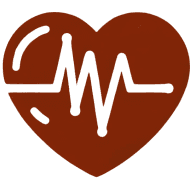How Can Cardiology Professionals Cope With Caring for Critically Ill Cardiac Patients?
Delving into the high-stakes world of cardiology, this article sheds light on the strategies for managing the immense pressures faced by professionals in the field. Drawing on the wisdom of seasoned experts, it offers a compendium of tactics for self-care, support systems, and mental well-being vital for those caring for critically ill cardiac patients. Navigate the delicate balance between professional dedication and personal health with evidence-based approaches that enhance resilience in this demanding healthcare sector.
- Prioritize Self-Care and Mental Health
- Create a Supportive Work Environment
- Focus on Helping Yourself and Reaching Out
- Establish Boundaries and Seek Peer Support
- Use Mindfulness and Cognitive Behavioral Therapy
Prioritize Self-Care and Mental Health
Caring for critically ill cardiac patients is immensely rewarding, but it can also take a significant toll on emotional well-being. According to a study by the American College of Cardiology, nearly 25% of cardiologists report experiencing mental health challenges, including burnout and psychological distress. This underscores the importance of prioritizing mental health for those who provide life-saving care.
To manage this emotional toll, self-care must be non-negotiable. Regular physical activity, a balanced diet, and adequate rest form the essential foundation for resilience. Peer support groups and consultations with mental health professionals offer safe spaces to share experiences and learn effective coping strategies.
Mindfulness practices, such as meditation or even a few minutes of deep breathing, have been shown to reduce stress and improve focus. Research indicates that healthcare professionals who engage in mindfulness experience lower levels of burnout and emotional exhaustion.
Recognizing the early signs of burnout—such as emotional exhaustion, depersonalization, and reduced professional fulfillment—is crucial. Proactively addressing these signs can prevent long-term consequences.
Above all, seeking help is not a sign of weakness but of strength. Prioritizing your emotional health is essential not only for your well-being but also for the patients who rely on your expertise. By taking care of yourself, you maintain the capacity to deliver exceptional care while sustaining your passion for saving lives.

Create a Supportive Work Environment
In managing the emotional toll of caring for critically ill cardiac patients, it's crucial to focus on creating a supportive work environment, similar to what we aim for at MentalHappy with virtual support groups. I've seen how providing a structured space where colleagues can express frustrations and seek solutions collectively can renew a healthcare professional's commitment to patient care.
Another approach is embracing data-driven strategies. At MentalHappy, we use data to track health outcomes, which helps in recalibrating care strategies based on results. Cardiology professionals can similarly benefit by employing patient data to visualize positive outcomes and progress, offering relief and reinforcing purpose amidst challenging scenarios.
Incorporating creative interventions can help manage emotional stress. From MentalHappy's experience with the Write it Out group, encourage healthcare teams to engage in storytelling or journaling sessions about their experiences. Such practices can open up emotional expression, reduce burnout, and strengthen team bonds, fostering a healthier work culture.

Focus on Helping Yourself and Reaching Out
Good day,
Focus on helping yourself and reaching out for support is one of the advice I would share with a cardiology nurse/junior doctor expecting to work with critically ill cardiac patients. It's easy to become emotionally drained when you're constantly focusing on patients with life-threatening conditions. Frequent breaks, doing things which calm and restore you, and having a life outside work are all important.
The context of creating a support network with coworkers, mentors, and counselors. Discussing challenging cases with trusted colleagues can offer emotional catharsis and perspective. This information enables you to prioritize your mental self-care so that you can continue to provide compassionate care in your high-pressure position.
Identify and validate your feelings. It's natural to feel a myriad of emotions like frustration, sadness, or helplessness when dealing with critically ill cardiac patients. Instead of suppressing those feelings, it is useful to process them in constructive ways, such as writing them out, discussing them with a supervisor, or leading yourself through some mindfulness practices.
Also, attempt to zero in on the positive effect you have on your patients, even if little. Reminding yourself of the good you are doing for them, even if it's just a tiny improvement in their condition or just making them comfortable in their last days, can help you to avoid emotional burnout.
Finally, do not be afraid to set boundaries when needed. You do not have to take on every emotionally traumatic case or handle all of them yourself if you need to protect your mental health. Self-compassion is the antidote to emotional exhaustion, something all of us need in order to keep doing what we do so well.
Establish Boundaries and Seek Peer Support
Focus on establishing boundaries between work and personal life while seeking support from peers. Caring for critically ill patients can be emotionally draining, so it's important to debrief with colleagues who understand the challenges-peer support groups or team check-ins can provide a safe space to share experiences. Additionally, prioritize self-care routines, such as exercise or mindfulness practices, to help manage stress. Remember, providing compassionate care starts with taking care of your own emotional well-being. Acknowledge the limits of your control and celebrate the positive impact you make, even in difficult cases.

Use Mindfulness and Cognitive Behavioral Therapy
In my experience as a Licensed Professional Counselor specializing in trauma and mental health, I understand the emotional toll caring for critically ill cardiac patients can take. To manage this, I prioritize mindfulness techniques with my clients, which I've found incredibly effective for emotion regulation. It's about grounding yourself amidst the emotional storms.
One practical approach is the use of Cognitive Behavioral Therapy (CBT), a technique I've used to help individuals facing high-stress situations. By reframing negative thoughts and focusing on positive impacts—like patient improvement—you can find resilience. Just as CBT participants find progress through changing thought patterns, you can shift your focus to the meaningful changes you initiate in patient care.
Additionally, my work with clients has shown that establishing a strong support system can make all the difference. Sharing experiences with colleagues who understand your challenges can provide emotional relief and create a shared sense of purpose. Engaging in group therapy or peer supervision sessions can be an effective way for cardiac professionals to process their emotional burdens and refresh their passion for their work.



